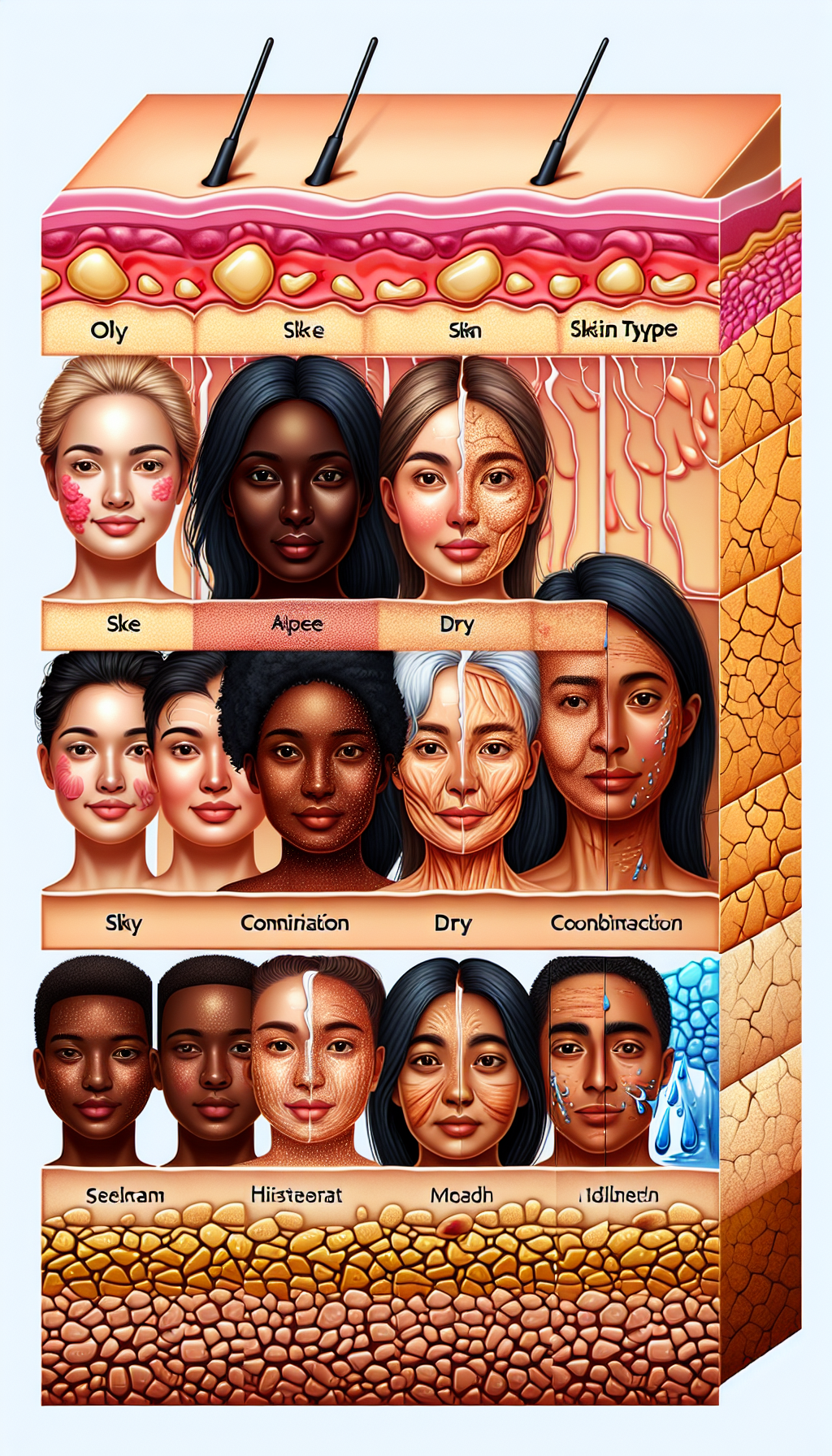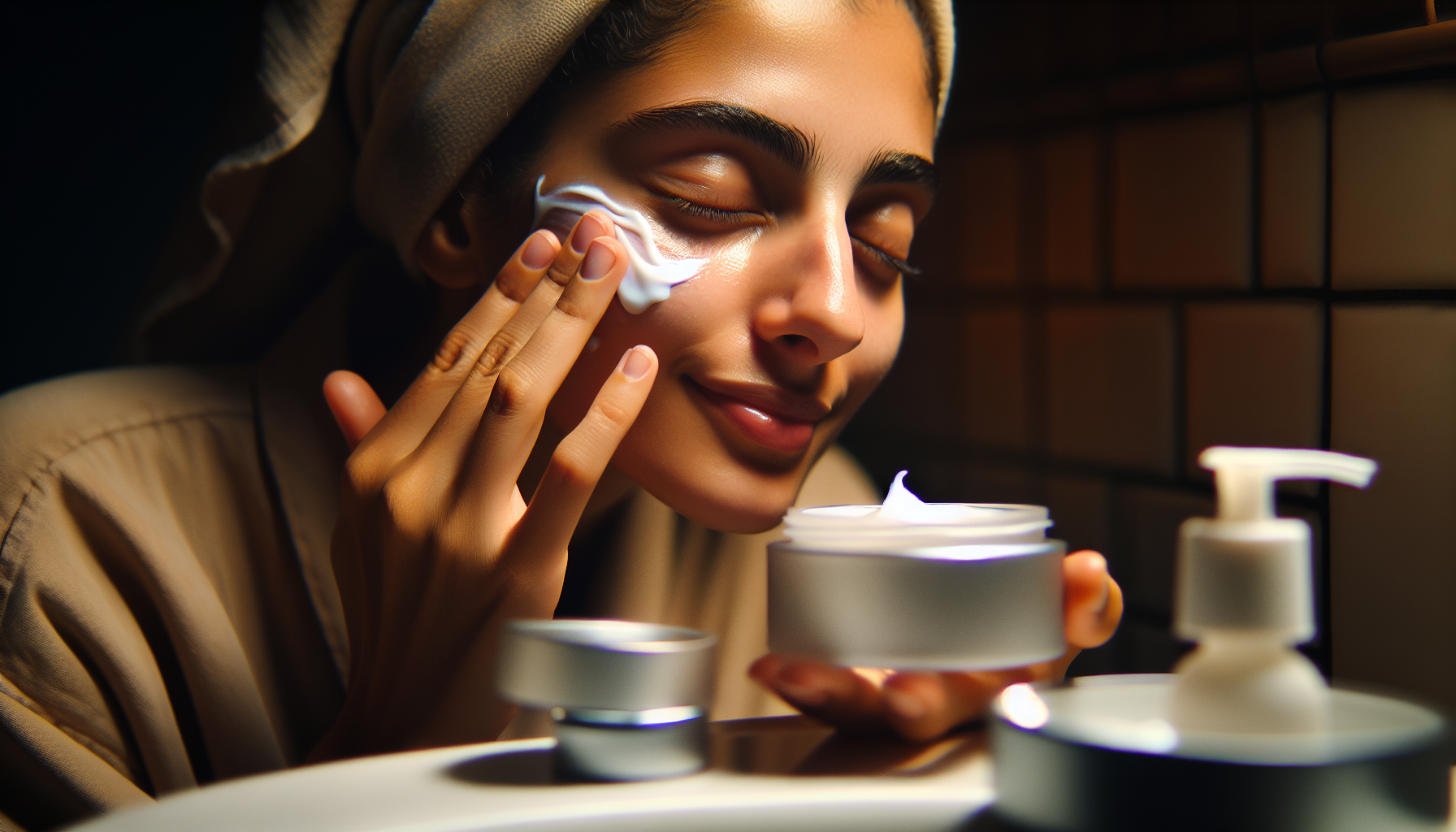Your skin is the largest organ of your body and serves as a protective barrier between your internal organs and the external world. It’s also a reflection of your overall health and well-being. Understanding your skin type is the first step in taking proper care of it. From oily to dry, combination to sensitive, each skin type has its unique characteristics and care requirements. This comprehensive guide will help you identify your skin type and provide you with the best practices for maintaining healthy, radiant skin.
Identifying Your Skin Type
The first step in proper skin care is identifying your skin type. Generally, skin types are categorized as normal, oily, dry, combination, or sensitive.
- Normal skin is well-balanced, neither too oily nor too dry.
- Oily skin is characterized by excess sebum production, leading to shine and a greater propensity for acne.
- Dry skin often feels tight and may flake due to a lack of moisture.
- Combination skin exhibits qualities of both oily and dry skin, often with oiliness in the T-zone (forehead, nose, and chin) and dryness on the cheeks.
- Sensitive skin reacts easily to stimuli, resulting in redness, itching, or rashes.
To determine your skin type, you can perform a simple test by washing your face with a gentle cleanser, patting it dry, and waiting for about an hour. After this time, observe your skin’s texture and note any shine or tightness.
Care for Each Skin Type
Normal Skin
Normal skin requires a balanced approach to maintain its health. Regular cleansing, moisturizing, and sun protection are key. Use a mild cleanser, a light, non-greasy moisturizer, and apply sunscreen with at least SPF 30 to protect against UV damage.
Oily Skin
Those with oily skin should focus on controlling excess oil without stripping the skin of its natural moisture. Use gel-based or foaming cleansers and oil-free moisturizers. Exfoliating regularly can help prevent clogged pores. Managing oily skin and preventing acne requires a careful balance of gentle yet effective products.
Dry Skin
Dry skin needs hydration and protection from environmental factors that can exacerbate dryness. Look for cream-based cleansers, rich moisturizers, and products containing hyaluronic acid or glycerin. Avoid hot showers and harsh soaps, as these can strip your skin of its natural oils.
Combination Skin
Combination skin can be tricky to care for as it requires addressing both dry and oily areas. Use a gentle cleanser, a light moisturizer, and consider using targeted treatments on specific areas, such as spot treatments for acne or richer creams for dry patches.
Sensitive Skin
Sensitive skin requires products formulated to soothe and reduce irritation. Opt for fragrance-free, hypoallergenic products, and introduce new products to your routine gradually. Understanding and treating common skin conditions can guide those with sensitive skin to better manage their unique challenges.
Advanced Care Tips
Regardless of your skin type, there are additional considerations that can enhance the health and appearance of your skin:
- Hydration: Proper hydration is crucial for all skin types. Drinking plenty of water and using products with hydrating ingredients can help maintain your skin’s moisture balance. Learn more about the role of hydration in maintaining skin health.
- Diet: Your diet can significantly impact your skin’s health. Foods rich in antioxidants, Omega-3 fatty acids, and vitamins can promote a healthy complexion.
- Exercise: Regular physical activity increases blood flow, which helps nourish skin cells and keeps them vital.
External Resources for Further Reading
Delving deeper into understanding your skin type and its care can be supported by niche, specific resources. Here are a few valuable external resources:
- The American Academy of Dermatology provides in-depth information on caring for each skin type.
- PubMed offers a wealth of scientific studies on skin care, including the effects of diet and hydration on skin health.
- The Environmental Working Group’s Skin Deep database is an excellent resource for researching the safety and effectiveness of skin care ingredients.
Regular Check-Ups and Professional Advice
It’s also essential to visit a dermatologist regularly for skin check-ups. They can offer personalized advice and help you navigate any skin issues you may encounter. Skin Health Awareness and the Importance of Regular Check-Ups highlight the benefits of professional skin assessments.
The Role of Skin Care in Overall Health
While focusing on the external aspects of skin care, it’s important to consider how skin health ties into your overall well-being. Healthy skin is a reflection of a healthy body and mind. For comprehensive health information, including skin health, visit Avix Health for resources on various aspects of wellness.
Conclusion
Understanding and caring for your skin type is a vital aspect of maintaining not only your skin’s health but your overall health as well. By following the guidelines provided for each skin type and incorporating the advanced care tips into your routine, you can enjoy a clearer, more radiant complexion. Remember to consult with a dermatologist for personalized advice and to conduct regular skin check-ups. With the right care, your skin can remain vibrant and healthy at every stage of life.



